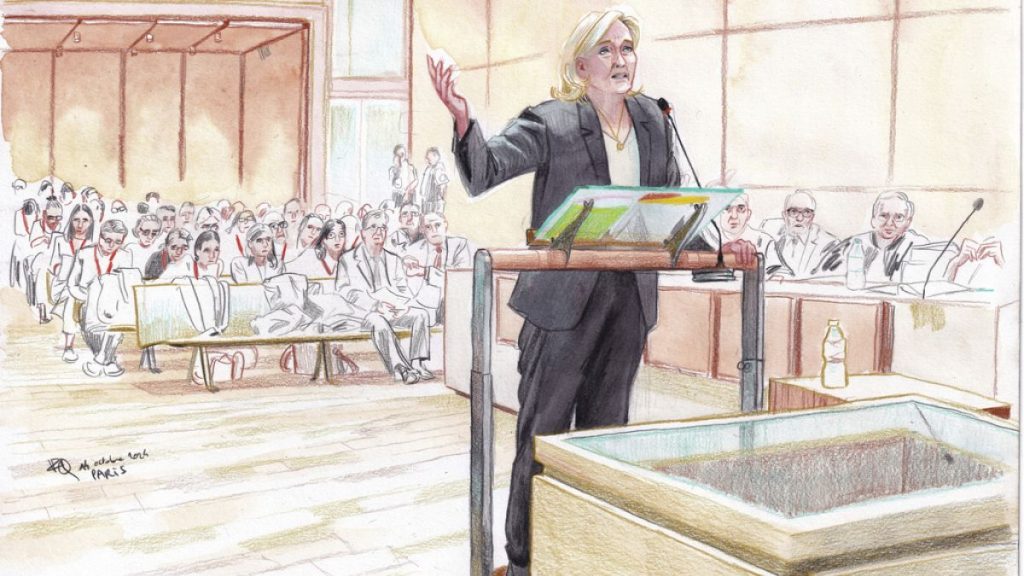The leader of France’s far-right National Rally, Marine Le Pen, is currently embroiled in a trial that could have significant implications for her political career. Along with 24 National Rally officials, she is accused of embezzling EU parliamentary funds, with Paris prosecutors requesting a 2-year prison sentence for Le Pen and an additional 5-year period of ineligibility to run for office. The trial revolves around allegations that money intended for European Parliament aides was used to pay party staff between 2004 and 2016, in violation of EU regulations.
The prosecutors have demanded a guilty verdict for Le Pen, imposing a €300,000 fine and an additional three years of suspended prison sentence. They have also requested that the period of ineligibility be enforced immediately, regardless of any potential appeals. Le Pen, who has denied the accusations, believes that the prosecutors are primarily interested in preventing her from running for president in 2027. She has argued that the aides’ missions were adapted to various activities related to the MEPs, including tasks that were political in nature and beneficial to the party.
Despite facing serious allegations, Le Pen has remained composed in the courtroom and expressed disbelief at the prosecutors’ claims. The trial is set to conclude on November 27, with the defence lawyers yet to present their arguments. Le Pen’s co-defendants, many of whom owe their political or professional careers to her, have testified under her supervision, providing explanations that were often vague and unconvincing. The prosecution estimates the cost of the embezzlement at €4.5 million and believes that the fraud has been clearly established based on the evidence presented.
Le Pen has been a significant political figure in France, having been the runner-up in the 2017 and 2022 presidential elections, with growing electoral support for her party in recent years. She insists that the National Rally never faced any objections from the European Parliament until an alert was raised in 2015 by the then-president Martin Schulz. Despite acknowledging that the rules regarding parliamentary aides may have been more flexible in the past, Le Pen maintains that the party’s practices were legitimate and that misunderstandings have led to unfair accusations.
The court, under the president Bénédicte de Perthuis, has emphasized the importance of legal reasoning in the trial, irrespective of the political implications. The key question remains whether the parliamentary aides were working for the MEPs they were attached to or for the National Rally. The allegations of fraudulent use of EU funds have placed Le Pen’s political future at risk, with the court tasked with assessing whether the evidence supports the claims against her. As the trial progresses, the outcome will not only impact Le Pen’s personal future but also have wider implications for the far-right National Rally party in France.


